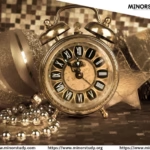🌟 Introduction: New Years Day – The Universal Celebration of New Beginnings
New Years Day: Every culture, every faith, and every corner of the world embraces New Year’s Day as a symbol of fresh starts. It is more than just a calendar change—it’s a profound, emotional, and spiritual marker of rebirth, reflection, and renewed purpose.
- 🌟 Introduction: New Years Day – The Universal Celebration of New Beginnings
- 📜 History of New Years Day: From Celestial Cycles to Modern Countdown
- 🧠 Fascinating Facts About New Years Day
- 🗓️ Timeline of New Years Day: A Brief Evolution
- 💬 Frequently Asked Questions (FAQs)
- ❓ Why do we celebrate New Years Day on January 1?
- ❓ Is New Year’s Day a global holiday?
- ❓ What do most people do on New Years Day?
- ❓ What’s the spiritual significance?
- ✨ Significance of New Years Day in Modern Life
- 🌍 Observance Around the World
- 💡 10 Powerful Truths About New Years Day 2025
- 1. 🔁 It Reconnects Us to Time
- 2. 🧘 It Sparks Mindful Living
- 3. 🤝 It Brings Humanity Together
- 4. 📵 It Encourages Digital Detox
- 5. 🕊️ It Symbolizes Forgiveness
- 6. 🎯 It Revives Motivation
- 7. 🌱 It Champions Growth
- 8. 💬 It Fuels Conversations
- 9. ❤️ It Encourages Self-Care
- 10. ✨ It Makes Us Dream Again
- 🎉 Wishing Ideas for New Years Day 2025
- 💥 Daily Life Impacts of New Years Day
- 📌 Important Points Recap
- 🔚 Conclusion: Why New Years Day Still Matters Deeply in 2025
New Year’s Day 2025, like each year before, carries with it not just champagne toasts and countdowns, but also deep human emotions: hope, regret, ambition, nostalgia, and joy.
This article dives deep into everything you need to know about New Year’s Day, from its ancient origins to modern significance, while keeping the narrative emotionally engaging, informative, and socially relevant.
📜 History of New Years Day: From Celestial Cycles to Modern Countdown
🏺 Ancient Babylon (circa 2000 BCE)
The earliest known New Year celebrations occurred in Mesopotamia.
The Babylonians celebrated Akitu, marking the spring equinox, planting season, and the renewal of the king’s divine mandate.
🏛️ Rome and the Julian Calendar
The Roman calendar originally began in March, until Julius Caesar reformed it in 46 BCE, shifting New Year’s Day to January 1st.
It honored Janus, the Roman god of beginnings, endings, gates, and doorways. His two faces looked both forward and backward—a perfect metaphor for the New Year.
✝️ Christianity and Middle Ages
With the rise of Christianity, many regions shifted their New Year observances to Christmas Day (December 25) or March 25 (Annunciation Day).
Eventually, Pope Gregory XIII’s Gregorian Calendar (1582) officially recognized January 1 as New Year’s Day, aligning with modern Western customs.
🧠 Fascinating Facts About New Years Day
January is named after Janus, the Roman god of duality.
Over 1 billion people worldwide celebrate New Year’s Day on January 1st.
Australia and New Zealand are the first major countries to ring in the New Year.
The Times Square Ball Drop tradition began in 1907 in New York City.
The world’s largest fireworks display often happens in Dubai or Sydney.
Some countries still follow lunar or solar calendars and celebrate New Year’s on different dates (e.g., Chinese New Year, Nowruz, Ugadi).
In Spain, it’s customary to eat 12 grapes at midnight, one for each stroke of the clock.
Over 45% of adults set a New Year’s resolution.
The first recorded New Year’s celebration was over 4000 years ago.
In many cultures, wearing certain colors on New Year’s is believed to attract specific blessings (e.g., red for love, green for health, gold for wealth).
🗓️ Timeline of New Years Day: A Brief Evolution
| Year | Event |
|---|---|
| 2000 BCE | Babylonians celebrate Akitu as a new year festival |
| 46 BCE | Julius Caesar reforms the calendar; Jan 1 becomes New Year’s Day |
| 1582 | Gregorian calendar solidifies January 1 as New Year’s Day |
| 1907 | First Times Square Ball Drop in NYC |
| 2000 | Y2K scare marks the most anticipated New Year ever |
| 2020 | New Year’s celebrations muted due to COVID-19 |
| 2025 | Focus shifts to well-being, sustainability, and digital detox |
💬 Frequently Asked Questions (FAQs)
❓ Why do we celebrate New Years Day on January 1?
Due to Julius Caesar’s calendar reform in 46 BCE, January 1 was chosen to honor Janus, and this became widely adopted in the Gregorian calendar.
❓ Is New Year’s Day a global holiday?
Yes! While not all countries follow the January 1 system, nearly all cultures celebrate a New Year festival based on their traditional or lunar calendars.
❓ What do most people do on New Years Day?
Reflect on the past year
Spend time with family and friends
Set resolutions or intentions
Watch parades and fireworks
Attend spiritual services or cultural rituals
❓ What’s the spiritual significance?
New Year’s Day is seen as a time of karma cleansing, emotional renewal, and soulful goal-setting across spiritual traditions.
✨ Significance of New Years Day in Modern Life
In our fast-paced, often chaotic lives, January 1st acts as a psychological checkpoint. It gives us:
Closure on the past
Hope for the future
Accountability for our habits
Joy in shared celebrations
A fresh canvas to paint new goals
More than just a party, New Year’s Day is an anchor of human optimism—and optimism is powerful.
🌍 Observance Around the World
🗺️ Celebrated Differently, Felt Universally:
USA: Fireworks, parades, midnight kisses, resolutions.
India: Cultural celebrations vary—Ugadi, Baisakhi, Puthandu, Gudi Padwa, depending on region.
Japan: “Oshōgatsu” is a serene, family-oriented event with temple visits.
China: Lunar New Year comes later; January 1 is often a business holiday.
Brazil: Beachgoers wear white and jump 7 ocean waves to bring luck.
The celebration might vary, but the sentiment of fresh beginnings is universal.
💡 10 Powerful Truths About New Years Day 2025
1. 🔁 It Reconnects Us to Time
We become aware of our lives as part of a larger, seasonal and cosmic rhythm.
2. 🧘 It Sparks Mindful Living
It’s the one day when nearly everyone reflects, asks deep questions, and resets priorities.
3. 🤝 It Brings Humanity Together
The global countdown reminds us we’re all living the same moment, breathing the same hope.
4. 📵 It Encourages Digital Detox
Many now begin the year by reducing screen time, reclaiming their attention and peace.
5. 🕊️ It Symbolizes Forgiveness
People often use it as a time to let go of grudges and past hurt.
6. 🎯 It Revives Motivation
Whether it’s a gym goal or learning a new language, this day helps spark momentum.
7. 🌱 It Champions Growth
From spirituality to sustainability, growth over guilt is the theme for 2025.
8. 💬 It Fuels Conversations
Families, friends, and workplaces all talk about visions and values around New Year.
9. ❤️ It Encourages Self-Care
Mental health, gratitude journaling, and positive habits take center stage.
10. ✨ It Makes Us Dream Again
Above all, New Year’s Day rekindles the human spirit of dreaming big.
🎉 Wishing Ideas for New Years Day 2025
Craft meaningful wishes beyond “Happy New Year”:
“May 2025 bring peace to your soul, clarity to your goals, and joy to your journey.”
“Here’s to new chapters, second chances, and bold dreams.”
“Leave behind what weighs you down. Carry forward what lights you up.”
“This is your year—walk in with courage, step out with pride.”
💥 Daily Life Impacts of New Years Day
Emotionally:
Boosts mental reset after stressful holidays or difficult years.
Allows space for grieving, celebrating, and setting boundaries.
Socially:
Reinforces community rituals—whether you’re lighting fireworks or cooking family meals.
Personally:
Motivates better time management and self-discipline.
Encourages vision planning and introspection.
📌 Important Points Recap
New Year’s Day has ancient roots in Babylon, Rome, and Christian Europe.
Celebrated globally, though not always on January 1.
In 2025, its importance lies in mindful living, connection, and purpose.
Observed with spiritual, festive, and emotional tones across cultures.
It’s more than a day—it’s a declaration of intent and hope.
🔚 Conclusion: Why New Years Day Still Matters Deeply in 2025
In a world grappling with digital noise, environmental concerns, mental fatigue, and social disconnect—New Years Day offers something no other day does: a global permission to pause, reset, and begin again.
“The first day of the year isn’t just the start of another 365-day cycle—it’s the moment we collectively dare to believe again.”
Let this January 1st, 2025, be more than a celebration. Let it be a soulful commitment to live consciously, love generously, and dream audaciously.








